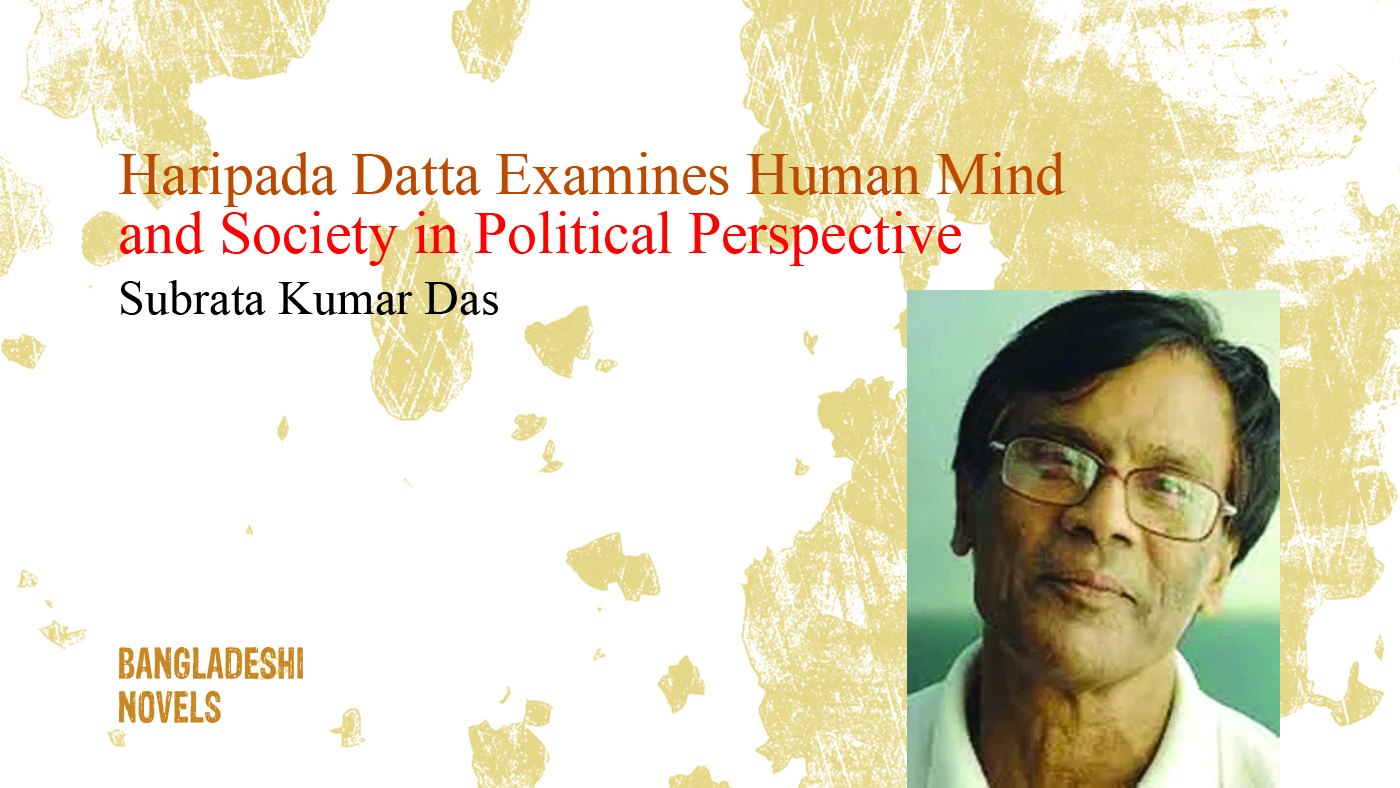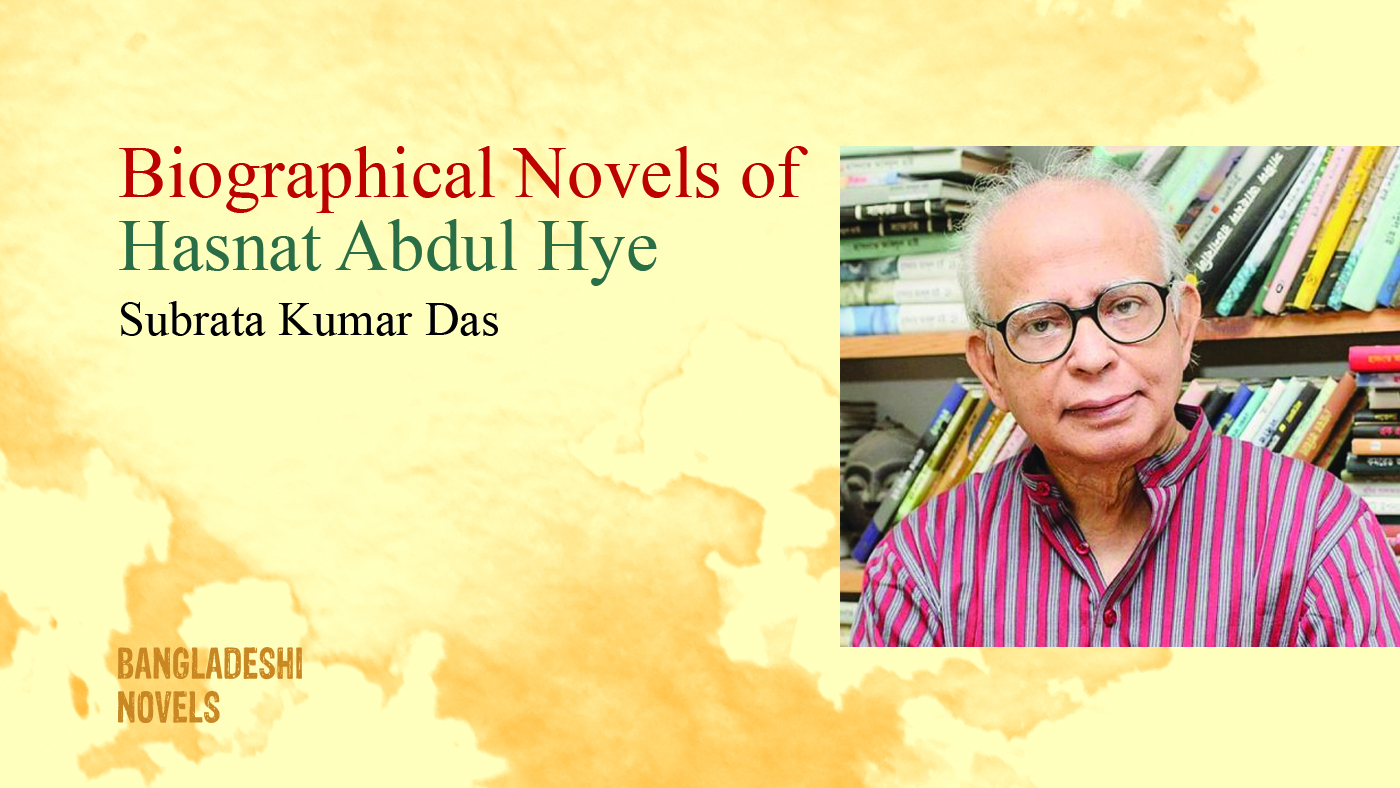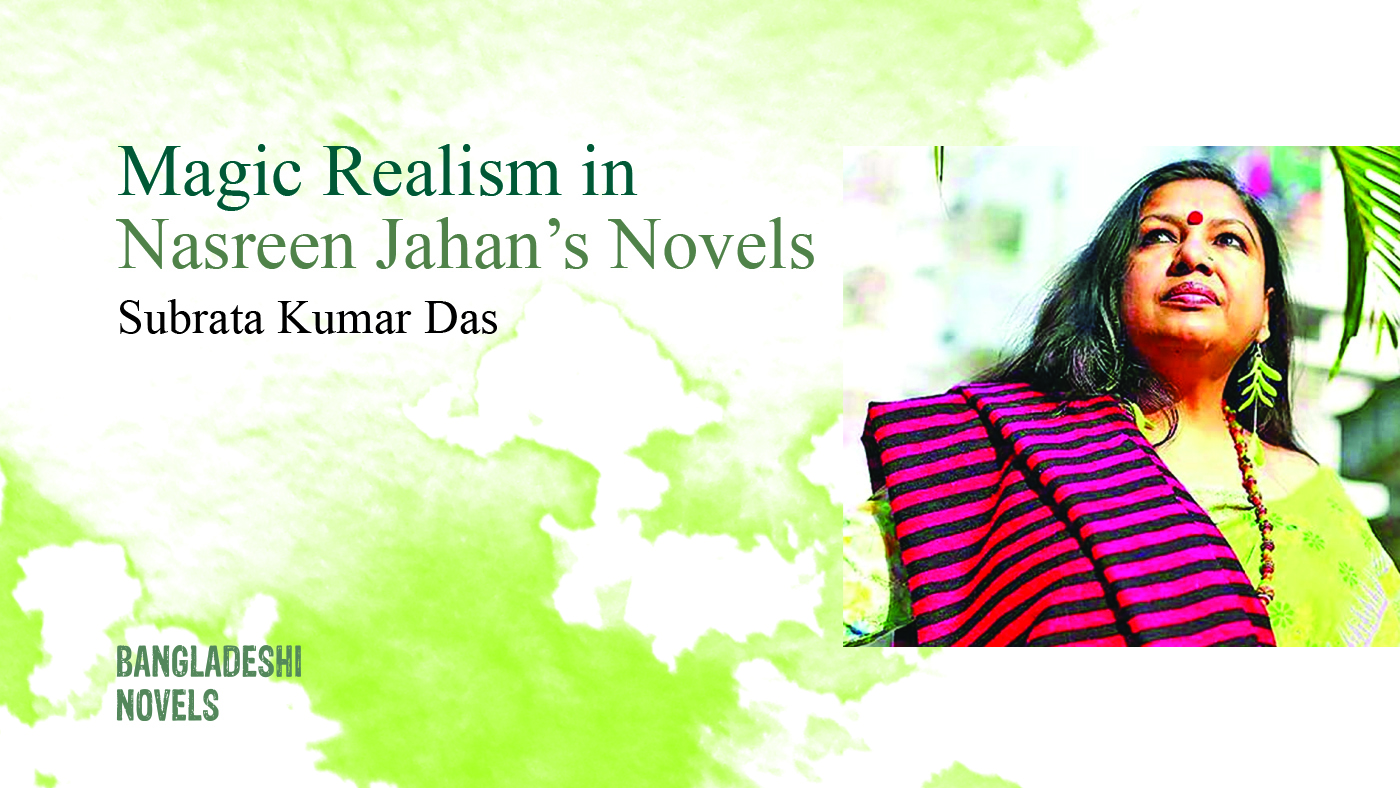
In some way or other each and every reader of Bangla novels recognises the weighty steps of Humayun Azad (1947-2004) the novelist who took the least time to achieve the highest acclamation from both popularity and artistic point of view. True that he has authored five novels already in the last five years, though everyone admits that his first novel Chhappanno Hajar Bargamail (Fifty Six Thousand Square Miles) published in the subsequent year alone posed a tour de force in the history of contemporary Bangladeshi novel. The different narration – a unique feature of Azad’s prose – intermingled with sophistication of ideas gives his novels an outstanding characteristic. His delineation of uncommon and untouched ideas, at least in novels of Bangladesh scenario, appears to the reader as unvisited ideas gives his novels an outstanding characteristic. His delineation of uncommon and untouched ideas, at least in novels of Bangladesh scenario, appears to the reader as an unvisited land of mystery that holds the readers spellbound.
Previously acknowledged as a poet and linguist, a columnist and a critic Humayun Azad crowned the title ‘novelist’ when his first novel began to get published serially in the literature pages of a daily during the year 1993. The subject matter that he selected for this novel Chhappanno Hajar Bargamail enchanted the whole readership because never in earlier time such an effort was artistically made in the form of fiction. With this novel Humayun Azad also presented his readers with such a language that had a specialized vein of narration and diction. In the next Banla Academy Book Fair the book attained its two-covers shape and Azad received hilarious appraisal that he deserved.
The suffocated environment under a military rule has been manifested in that book regarding which no worthy endeavour was previously done. The next year 1995 produced Sab Kichhu Bhenge Pare (All Things Fall Apart) form Azad’s pen in which a same linguistic style prevails, though it demonstrated a dissimilar context and theme – for the main theme this second novel took the exposition of masculine sexual behaviour. Manush Hishebe Amar Aparadhshamuha (My Offenses As a Man) published in 1996 took an identical idea as its theme. But he innovates a fictional character, a propagator, who creates all sorts of means to satiate his lust and last of all upholds a new religion under the sun in his novel Shubharata Tar Shamparkita Shushamachar (Shubhabrata, and His Gospel) which thrived in book markets in the following year. In all these four novels Humayun Azad generated a particular linguistic trend that is completely of his own. His novel Rajnitibidgon (The Politicians) maintains such a language which is totally different from the preceding ones. To portray the people of our political atmosphere – their nature and behaviour, their ignorance and hollowness – Azad manipulated this distinctive speech for this novel and thus having dialect and slang, mother tongue and foreign tongue, rather a hotchpotch of all these Rajnitibidgon proves itself as a document of our present politico-society.
From 1994 to 1998 is undoubtedly a very short time. Not that there did not happen any meritorious creative accomplishment of any new writer in this prepared. In these years Monju Sarkar, Shahidul Zahir, Akimun Rahman, Nasreen Jahan have presented themselves to the readership of Bangladesh with worthwhile attempts. They wrote a good number of brilliant novels in this short period. In this period Akteruzzaman Elias’ highly appreciated novel Khoabnama, Ahmed Sofa’s Pushpa Briksha Ebong Bihanga Puran that innovates a new genre in novel or Shamsuddin Abul Kalam’s Kanchongram or Matir Jahaj by another outstanding novelist Mahmudul Huq are all laudable publications by renowned novelists working long in this arena. But the appearance and existence of Humayun Azad, the novelist, can no how be ignored.
A keen observation proves that characterization is never a serious consideration in Humayun Azad’s novels. Rather building up lofty ideas, illuminating them upside down, adding new dimension to common or uncommon thoughts and beliefs Azad created a new horizon in his novels. True, there is Rashed as the protagonist in Chhappanno Hajar Bargamile or the first-person narrator Mahbub established himself as the worthy main character in Sab Kichhu Bhenge Pare there appears Anis in Marush Hishebe Amar Aparadhsamuha or Shubhabrata himself in Shabhabrabata, Tar Samparkita Susamachar but subsiding all of them the other things take the upper-hand. Finishing any of his novel, the reader receives a deeper impression from the viewpoints incorporated in the stories than the characters.
Chhappanno Hajar Bargamile deals with a time under martial law, which a few authors of this soil dared to administer. The story begins with the speaker-protagonist Rashed’s daughter Mridu who makes complaints to her father about the closure of her school for some invisible reason. Rashed instantly guesses about the intrusion of a new martial rule which had been a usual norm in this country. The dark society, crippled by this unwanted power stagnates itself for years. Reason and prudence, creativity and liberty of press all get stoppered down under the shackles of this roaring animal. Only reactionaries and flatterers expose themselves as successful in this cobwebby pseudo-democratic atmosphere.
The main and the only theme that Azad treats much meticulously and realistically in Sab Kichhu Bherge Pare is the development of sexuality of a male human. Exposing two separate periods of 11 to 15 years and about the age of his 45 odds of Mahbub, an engineer who designs bridges, the writer tries to illuminate the ‘libido of him – the inner spirit in himself as well as the social existence of him. Taking no hesitation into consideration in exploring these two-fold feature of one’s sexuality the author gradually illustrates the chronological uplift of the protagonist of the novel.
Though in Manush Hishebe Amar Aparadhsamuha, Azad fails to come out of the psychological world of his previous novel which was rightly termed as ‘monotony’ and this monotonous manipulation continues to his fourth novel Shabhabrabata, Tar Samparkita Susamachar not predominantly but noticeably at least. Manush Hishebe Amar Aparadhsamuha characterizes one Anis, a bureaucrat with all his social interactions where most of his thoughts and happenings concentrate in his physical lust and closely related feelings.
As mentioned earlier in Shubhabrata, Tar Samparkita Susamachar this lust prevails with similar power, though as a main theme it presents a fictitious life-story of the title-character Shubabarata who ultimately recognises himself as a pioneer of a new religion. In a convincing way Azad assimilates multifarious events – both in inner and social sitting to prove Shubhabrata as a religious personality who, he and his disciples think, has been ordained by the Almighty Himself to form and lead an emerging human group. In this new society all exercises of intellectual and educational matters receive prohibition, as we observe as usual phenomena in any state governed by orthodox authority.
In all these above discussed novels any reader can trace some analogous characteristic in respect of narration at least. Stories deliberated in all of them establish a unique language which is mostly Humayun Azad’s own. But in the last one (certainly we aspire more from him in the forthcoming days) that came into light in February ’98 the language and description take a dissimilar appearance. In Rajnitibidgon no traditional narration is seen, the people (janagan) relate the whole thing. Different episodes (not in a formal way as in novels episodes are divided) different people starts with descriptions of the existing political streams and consequently makes focus on inner thoughts and outer behaviours and activities of their leaders and supporters. And thus Azad pictures the whole gamut of the political world of our country stressing their mountainous ignorance and lovelessness and corruption. Azad’s inherent capacity in treating larger subjects with appropriate and necessary humour credits the novel with a pleasing tone.
This humour along with wit demonstrates Humayun Azad’s novels always. From Chhappanno Hajar Bargomile through Shabhabrabata, Tar Samparkita Susamachar to Rajnitibidgan Azad manifests this specialty with praiseworthy ingenuity. Handling the political men in satirical vein, never so bravely treated earlier, he proves himself as a major novelist in Bangladesh, to speak true in the modern Bangle novel despite all his warts and weaknesses.
Simultaneously, we should not forget that Humayun Azad, the fabricator of stunning and courageous ideas thus depicts himself in his novels. As Milan Kundera (b 1929) the Czechoslovakian novelist expounds in the essay ‘Dialogue on the Art of the Novel’ “…I don’t show you what happens inside Jeromil’s (The hero of his novel Life is Elsewhere) head; rather, I show what happens inside my own; I observe my Jeromil for a long while, and I try, step by step, to get to the heart of his attitude, in order to understand it, nake it grasp it,” (The Art of the Novel) Humayun Azad also in a similar way associates his own self with the thoughts of his characters like Shahed, Mahbub and Anis.
Monotony in expression of episodes dealing sexual affairs about which we talked before, some repetitive features in his language and less concrete characters may be marked as some negative elements of his novels. But it seems there are more room to examine them from other points of view. As the author feels necessary, he repeats his key words and ideas; as he emphasizes the elevated themes, he does not pay so much attention to create his characters in round forms and possibly in this way Azad may receive some excuse from his readers.
The absence of the time from 16-44 years of Mahbub’s life which no one can deny as the prime time in one’s sexual life, lack of other features in Anis’ character without which a round personality could not establish, or the exaggerated description of Shubhabrtata’s early life are some few that diminish the magnificence of his novels.
Primarily a poet Humayun Azad has authored many books on new and revolutionary ideas. He is always different from others as he is in his personal life. Unparalleled thinker Azad confirms himself unrivaled in his novels also. Unparalleled thinker Azad confirms himself unrivaled in his novels also. And thus he is playing a seminal role in the realm of contemporary Bangla literature.







